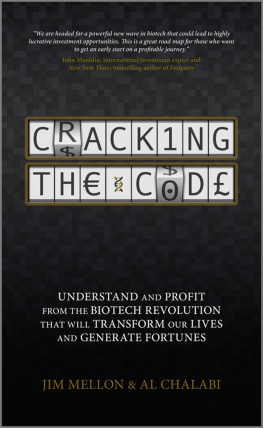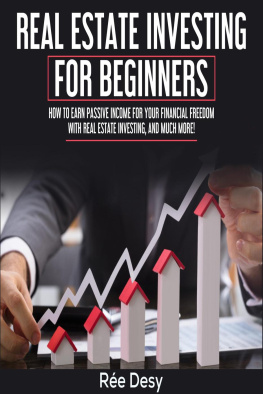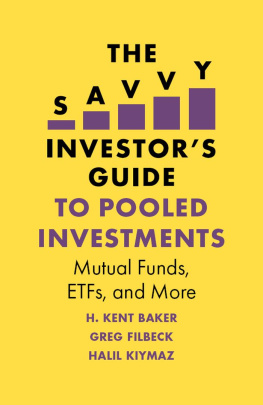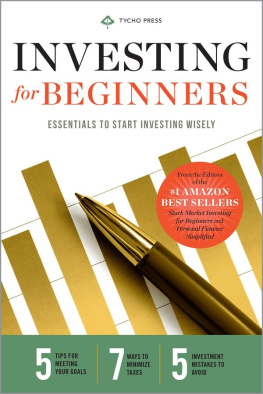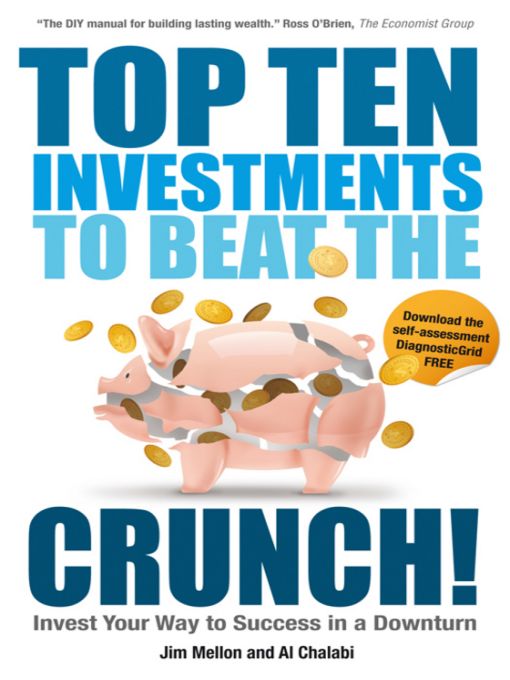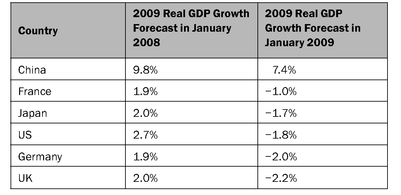Table of Contents
About the Authors
Jim Mellon is an investor and entrepreneur with a fla ir for establishing successful companies around the globe. His businesses include a listed fund management company, an Asian mining group and an Isle of Man based bank. Burnbrae, his private company, is a substantial landlord in Germany and in the Isle of Man, and also owns Sleepwell Hotels.
Al Chalabi is a business consultant and entrepreneur who has been based in Asia for the past 13 years. He has extensive experience in establishing and growing businesses in developing economies. Currently based in Hong Kong, Al has lived, studied and worked in the UK, Canada, France and the United States.
Prologue
When we published our first book towards the end of 2005, entitled Wake Up! Survive and Prosper in the Coming Economic Turmoil, we were very excited to finally see our hard work over the previous 18 months in bookshops all over the world. The feedback we received from many friends and readers was generally neutral; on the whole they found it very interesting and informative but thought we were being overly pessimistic in our predictions for the global economy and in particular those of developed nations of the US and UK. Wasnt there a little too much Chicken Little in the text, warning everyone that the sky was falling?
Among other things, we predicted that the US housing market would experience great diffic ulties by 2007; this, we said, would precipitate an end to the credit binge that had engorged Western asset prices. We also made some strident economic forecasts.
Many friends and other commentators asked how could we be so bold as to make statements such as major investment banks will go bust and property prices will tumble. For the many who were caught up in the heady days of credit-fuelled bull markets, our words of warning seemed rather far-fetched - and we received wry, benevolent smiles from a lot of the people we spoke to.
Of course, the optimists who formed the majority of investors as recently as 2007 have been sadly confounded. It is now generally accepted that the world is experiencing the sharpest, most painful contraction in asset prices since the Second World War and almost every economy on the planet is suffering either a marked slowdown in economic growth or outright recession.
The catchwords today have become defla tion and - horror of horrors - a replay of the Great Depression of 1929-1933.
In many ways, the reaction of the bull market brigade to our Cassandra-like warnings was understandable. At the time the global economy appeared vibrant, stock markets were on the up and so were property prices. People felt richer and more confident than ever.
Yet all the while we knew - and it wasnt because of our special insight or some magic crystal ball, but because of basic facts staring us in the face - that the longer the party went on, the bigger the hangover was going to be. It was just a question of when the global economy did fin ally start to nosedive.
We have since then kept readers up-to-date with our Wake Up! newsletter, which we send out via email to subscribers. This newsletter has tried to provide timely commentary on pertinent events as they unfold. It is still available today free of charge. You are welcome to subscribe to it by visiting www.wakeupnewsletter.com.
As the newsletters went out, the economic outlook became ever gloomier. In fact, the speed of the implosion of banks, insurance companies, and the scale of the destruction of wealth has exceeded even our rather pessimistic forecasts.
The severity of the global economic crisis is undeniable. Forecasts for growth, or rather contraction, of major economies get darker by the day. Banks around the world are having huge amounts of taxpayer capital pumped into them in a variety of ways. Jobs are being lost at an unprecedented rate - one forecast is for a global loss of jobs of 50 million in 2009. Car companies and other industries around the world are running bleating to governments for bail outs. Governments are borrowing vast sums to prop up their ailing economies and central banks almost everywhere are trying to prime economic activity by quantitative easing (which in laymans terms means printing money).
The EU member states that experienced the biggest booms are now going through the most spectacular busts. For example, in Latvias capital Riga, flat prices have fallen 56 per cent since the middle of 2007, according to Balsts, a Latvian property company.The countrys economy has contracted by 18 per cent in the past six months alone.
Ireland expects its economy to contract by 4 per cent in 2009 and its current account defic it is forecast to reach an unsustainable 12 per cent of GDP by 2010. Large multinational corporations who used to benefit from Irelands cheap labour and real estate are now leaving for more competitive European countries, such as Poland.
Spain lost a million jobs in 2008 and is expecting unemployment to rise to 16 per cent by the end of 2009. Worse still, some economists are forecasting a peak unemployment rate of 25 per cent before the economy starts to improve. Spain became too reliant on property and tourism, both of which have burst. Over the past decade, Spains wage inflation has resulted in its labour force being uncompetitive relative to other European countries for the equivalent skills. Standard & Poors, a rating agency, has just stripped Spain of its AAA credit rating to AA+, citing structural weaknesses in the Spanish economy. This will increase the cost of borrowing for Spain. Other countries in the EU will no doubt follow in due course.
Excluding China, All Major Economies are Expected to Contract in 2009
Source: Consensus Economics and Bloomberg
Furthermore, the first signs of social tensions directly linked to the economic crisis are emerging: Icelandic pensioners pelting their Parliamentarians with eggs; Russians demanding Putins removal; Greek youth rioting; and protectionist sentiment - the huge spectre of the 1930s re-emerging in many countries.
But to backtrack a bit; by the start of 2007, we were more sure than ever that we were getting very close to the edge of the precipice. So we decided to start writing our second book, the updated version of which you are holding now.
We realized the period of economic turmoil that lay ahead provided unprecedented opportunities for long-term investors. So we set out to identify these opportunities and at the same time explain to readers why saving and investing is so important for their future wellbeing.
As we write this prologue early in 2009, the world looks very different from the one just a year ago. People and governments are in despair. Confidence in the system has been shaken to the core. Without confidence, there can be no growth. Remember our simple equation for growth that we are fond of using to clearly illustrate the requirements for growth:


